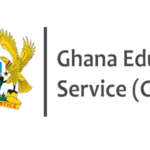In a recent announcement, Kwasi Kwarteng, the Public Relations Officer at the Ministry of Education, revealed the government’s intention to broaden the Smart Schools initiative to encompass basic education institutions. Speaking on the Pulse program on Thursday, April 4, Mr. Kwarteng highlighted the Ministry’s commitment to extending the benefits of technology-enhanced learning beyond Senior High Schools (SHS).
Kwarteng emphasized that the Smart Schools project, which leverages technology to enhance teaching and learning experiences, will now reach primary and junior high schools. Furthermore, he disclosed plans for a new initiative focusing specifically on Science, Technology, Engineering, and Mathematics (STEM) classrooms within these basic education institutions.
The announcement comes amidst criticism from opposition figures, notably John Mahama, the flagbearer of the National Democratic Congress (NDC). Mahama had previously suggested that the government’s launch of the Smart Schools project was a political move aimed at garnering votes in the upcoming general elections. However, Kwarteng refuted these claims, urging the public to evaluate government policies based on their long-term benefits rather than political affiliations.
The extension of the Smart Schools project to basic schools reflects the government’s commitment to modernizing education and equipping students with essential skills for the future. By incorporating technology and emphasizing STEM education at an early stage, the initiative aims to foster innovation, critical thinking, and problem-solving abilities among students across all levels of education.
By: Isaac Nyarko, UniMAC-IJ










No Comment! Be the first one.